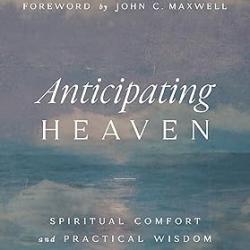 The Patheos Book Club is pleased to feature Father James Martin's Between Heaven and Mirth: Why Joy, Humor and Laughter Are at the Heart of the Spiritual Life. The book is being enthusiastically received as an invitation to permit real joy to enter our lives through the vehicle of faith that sustains us. Father Martin spoke with Patheos' Elizabeth Scalia about his motivation for writing the book and how humor can be a surprising and practical route to prayer.
The Patheos Book Club is pleased to feature Father James Martin's Between Heaven and Mirth: Why Joy, Humor and Laughter Are at the Heart of the Spiritual Life. The book is being enthusiastically received as an invitation to permit real joy to enter our lives through the vehicle of faith that sustains us. Father Martin spoke with Patheos' Elizabeth Scalia about his motivation for writing the book and how humor can be a surprising and practical route to prayer.
Given the Jesuit reputation for intellectualism, and relative to the times, some might have expected you to serve up something rather somber and heavy-handed. Why joy, why laughter, why now?
For two reasons. First, I spent a great deal of time giving talks and lectures and conferences on the saints, after my book My Life with the Saints came out. And I found that what people responded to most were stories about the joy of the saints—how they used humor in their lives, how much they laughed and how they were, contrary to the popular conception of the dour saints, joyful men and women. People seemed just delighted to hear this. "I never knew that about the saints!" they would say. "Tell us more!" It was also as if they were looking for permission to be joyful Christians—and laugh!
Second, I've run into many "professionally religious" types who are really serious sorts, as if they have the weight of the world on their shoulders. Both those experiences moved me to write something about the seriousness of levity. But, ironically, the book does have its "intellectual" side, too: in its exegesis of some Scripture texts, for example.
And while the book is not serious in terms of being heavy, it is serious in terms of addressing an important topic.
So, Between Heaven and Mirth is not exactly a pie in the face, but it reminds us—as did Chesterton—that "angels fly because they take themselves lightly." Does that mean people have to be happy all the time, or they're earthbound?
Not at all. One point I make in the book several times in the book is that being joyful does not mean being happy all the time. Sadness is a natural and human—and healthy—response to suffering or tragedy. You would be a robot if you weren't sad from time to time. It's an indication of emotional health actually.
But overall faith should lead to joy, because joy is happiness in God. Happiness is an emotion about what life gives you; joy is deeper, for it comes from a relationship with God. So you can live a joyful life and still move between happiness and sadness.
I'm not arguing that we should be grinning idiots 24/7 but that too much in our understanding of religion says that we need to be unsmiling and serious. And I think that some of this, as I say in the book, comes from an overemphasis on Jesus as the "Man of Sorrows." He was a "Man of Joys," too.
On the surface, this book would appear to be feather-light reading—it contains a number of very funny jokes and humorous anecdotes—and yet it presents some very deep lessons. I was surprised at how often, while reading, I was moved to sincere prayer. But if the Holy Spirit moves on the air, it should not surprise us that laughter can lead us to prayer.
It shouldn't but it does! We're so used to thinking of prayer as serious—not simply in the sense of serious-important but serious-somber—that your observation can seem shocking. The other day someone asked, "How am I supposed to be contemplative if I'm not serious?" And I thought that this was a fascinating question, because it revealed the person's conflation of contemplation with an overriding seriousness. So I said, "Well, have you ever contemplated God's creation on a beach or in a sunrise?"
When he nodded, I said, "And were you doing it with a frown on your face?" We both laughed!
There is, you say, both the "good" laughter, which is joyful, warm and self-aware, and then there is the "bad" laughter, which is ungenerous and involves laughing at others—mockery and jeering, and such. Is there an idea worth exploring here, of good laughter opening us up—physically, emotionally and spiritual—to good influences and bad laughter doing the opposite?
That's an interesting question. Good laughter definitely opens us up—physically (by releasing endorphins); emotionally (by lightening our spirits) and spiritually (but enabling us to share in a God-given gift). And yes, bad laughter would do something of the opposite—it closes us down to other people, it moves us further away from God and it belittles someone. It's sinful, I believe.





